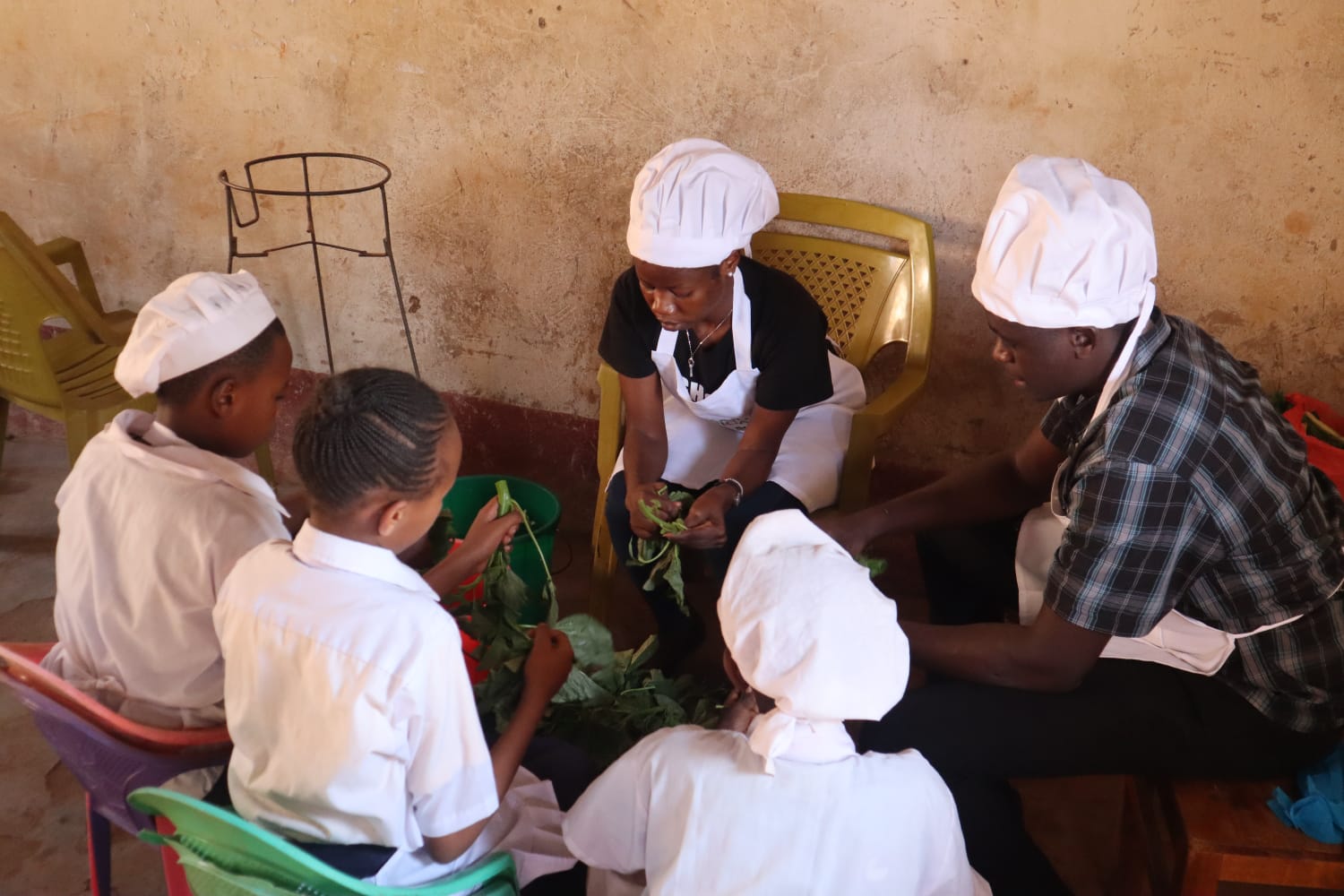 Learners at Kimau Primary preparing some of the indigenous crops harvested in the School Shamba for cooking. SCOPE Kenya is implementing a Three year Project in the School aimed at shifting learners away from fast foods to indigenous diets. Photo by Virginia Siebela
Learners at Kimau Primary preparing some of the indigenous crops harvested in the School Shamba for cooking. SCOPE Kenya is implementing a Three year Project in the School aimed at shifting learners away from fast foods to indigenous diets. Photo by Virginia Siebela
By Virgini Siebela
Primary schools in Machakos County are witnessing a remarkable rise in student enrollment, fueled by a transformative program that combines classroom learning with hands-on farming.
The initiative, spearheaded by SCOPE Kenya, encourages learners to grow vegetables and indigenous crops within school grounds—ensuring access to nutritious meals and equipping them with lifelong agricultural and nutritional knowledge.
At Kimua Primary School in Machakos town, the impact has been profound. Pupils not only grow crops like cassava, yams, arrow roots, managu, kale, amaranth, and spinach, but also learn how to prepare traditional meals under the Chefs Gathering Program.
Supported by professional chefs, students are rediscovering indigenous foods and healthy cooking methods—knowledge they hope to replicate at home.
“The learners here work freely without even being guided because they enjoy the project,” says Head teacher Michael Muthama. “When I arrived in 2022, the initiative was not well managed, but from 2024 we fully embraced it with support from parents. The results are clear—enrollment has grown from 192 pupils in 2022 to 292 this year.”
Teachers say the school farm has become both a classroom and a dining table.
“Our pupils are really engaged in the farm,” notes teacher Maxwell Mutua. “We grow mostly indigenous crops because they are rich in nutrients that help our children grow strong and healthy, while also shielding them from diseases.”
For many pupils, the program has been life-changing.
“Before, we were weak and often sickly. At home, we sometimes survived on just one meal a day because my father struggles with alcohol,” says Moses, a pupil at Kimua. “But here at school, I am assured of a second meal. Eating indigenous foods has made me healthier and stronger. I want to encourage other schools to embrace farming—it can help fight diseases like kwashiorkor and marasmus.”
Beyond farming, the program emphasizes nutrition education. Students have interacted with chefs to learn oil-free, minimally seasoned preparation methods for traditional dishes. According to Sheila Masitsa, such early exposure to nutrition is vital:
“Many people only turn to traditional foods when advised by doctors due to health complications. Teaching children now helps build lifelong habits.”
SCOPE Kenya says the goal is broader than school meals—it is about food sovereignty.
“Through this project, we are shifting learners away from fast foods to indigenous diets,” explains Monique Wambui of SCOPE. “We want a generation that takes charge of its food systems. The challenge has been changing mindsets, since traditional foods are still wrongly associated with poverty. But with sensitization and proof of their nutritional value, attitudes are beginning to change.”
Currently, SCOPE is working with schools in Machakos and Makueni Counties under a three-year program dubbed Transforming African Food Systems for Sustainability. By teaching children to cultivate, prepare, and appreciate indigenous foods, the organization hopes to inspire healthier families, stronger communities, and a future where no child misses school because of hunger.